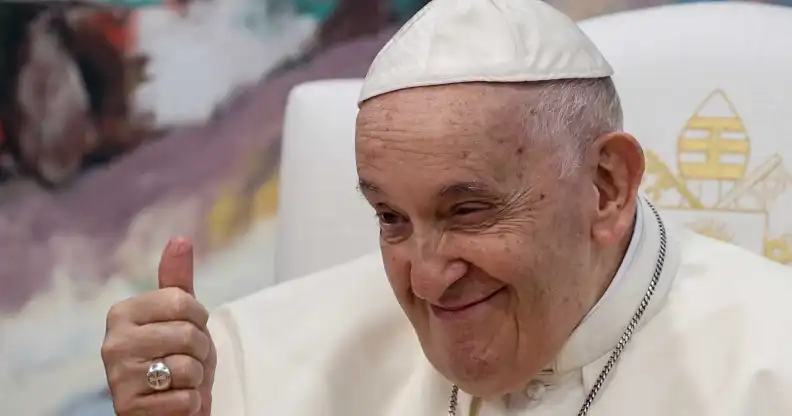In a significant move, Pope Francis has dismissed Bishop Joseph Strickland of Eastern Texas, following his criticism of the pontiff’s approach to LGBTQ+ inclusion within the Catholic Church. This decision was announced by the Vatican on 11 November, marking a pivotal moment in the Church’s ongoing discussions about inclusivity and doctrine.
Bishop Strickland had positioned himself as a vocal opponent of Pope Francis, particularly in relation to the pontiff’s recent declarations on welcoming LGBTQ+ Catholics. Describing these efforts as a “travesty,” Strickland openly challenged the Pope’s authority, accusing him of “undermining the Deposit of Faith” and labeling him a “diabolically disordered clown.” This confrontation reached its peak when Strickland refused a request to resign, prompting his eventual removal by Pope Francis.
A Controversial Stand Against Inclusivity
The conflict intensified after the Vatican conducted an “apostolic visitation” in June, a process that thoroughly examined the governance and leadership style of Bishop Strickland. Cardinal Daniel Nicholas DiNardo, Archbishop of Galveston-Houston, revealed that this exhaustive investigation led to the conclusion that Strickland’s continued leadership was “unfeasible.” This outcome suggests a growing intolerance within the Church hierarchy towards overt resistance against progressive steps.
Strickland’s criticisms were not limited to the issue of LGBTQ+ inclusivity; he also opposed the Pope’s restrictions on celebrating the old Latin Mass. His stance reflects a broader tension within the Catholic Church, where traditionalist views are increasingly clashing with more progressive attitudes, especially regarding LGBTQ+ issues.
Pope Francis’ Progressive Stance
This incident comes in the wake of Pope Francis’ declaration that transgender Catholics are welcome to participate in key church practices, such as baptism and serving as godparents, provided it does not lead to scandal or confusion. This inclusive stance, while celebrated by LGBTQ+ rights groups, has sparked controversy among conservative Catholics. Critics like Matt Walsh, a self-proclaimed ‘theocratic fascist’, argue against this inclusivity, claiming it contradicts traditional Catholic doctrine.
The removal of Bishop Strickland is thus seen as a strong signal from Pope Francis, reinforcing his commitment to creating a more welcoming and inclusive Church. While this decision has been divisive, it underlines the Pope’s dedication to embracing change and challenging long-standing norms within the Catholic faith.

